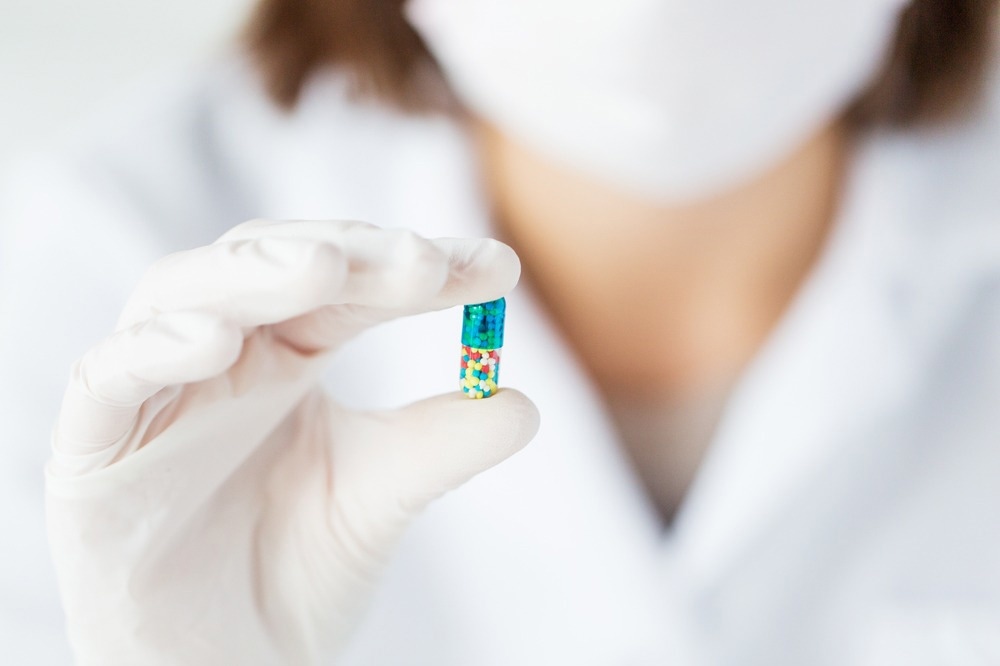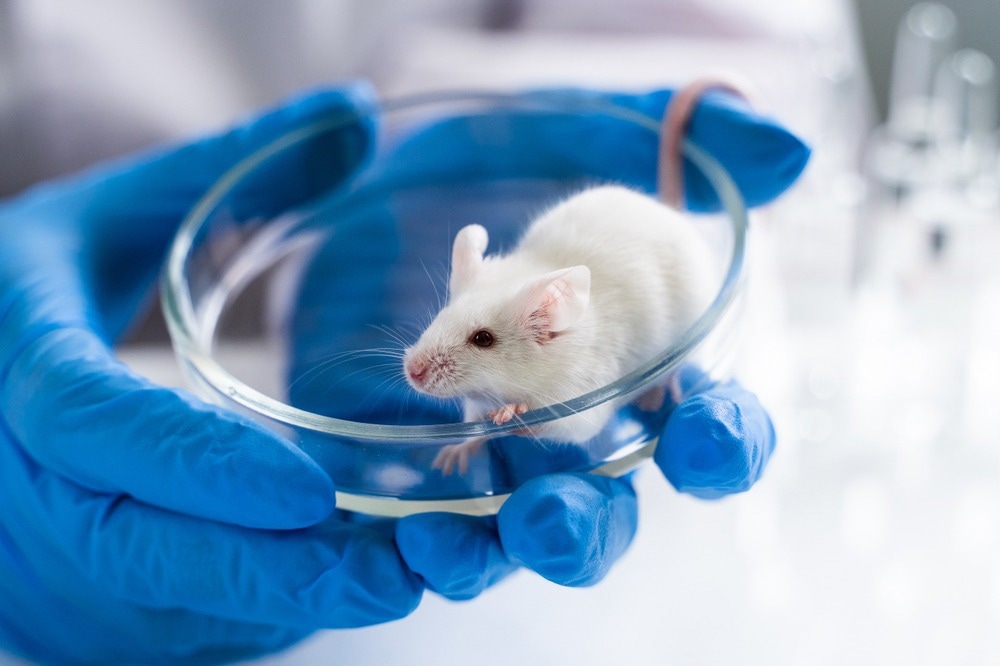The discovery of a novel drug against a disease takes at least ten years, or sometimes even more. Scientists have estimated that the average cost of developing one successful drug is $2.6 billion. Researchers face multiple challenges while developing new drugs, and this article focuses on some of the key challenges.

Image Credit: Ground Picture/Shutterstock.com
A Brief Overview of Drug Development
Drug development begins with identifying a target, which can be a protein or nucleic acid (DNA or RNA) that causes or plays an important role in the disease manifestation. A target is then validated to ascertain that modulating the target has a therapeutic effect. After that, scientists develop assays to screen for putative compounds that can alter, interact and modify the target. Identifying a drug compound from a pool of potential compounds is a tricky task; however, recent advancements in computation methods, such as high-throughput screening in a large compound library, have substantially accelerated this process, and it identifies multiple compounds.
A possible compound is selected based on the association between the chemical structure and target-based activity in a biochemical or cell-based assay. Lead compounds are tested via various assays and surrogates for absorption, distribution, metabolism, and excretion (ADME).
Animal models are used to determine the efficacy of a lead drug candidate that can be proceeded to clinical trials. The lead compound is tested in animal trials to assess its pharmacological and toxicological properties and determine the safety aspect before human trials. Optimization of this compound is the most cost-effective and time-consuming process. Following optimization, first-in-human testing begins (Phase Ia clinical trial), where a single drug dose is administered to healthy volunteers. This phase is followed by Phase Ib trials, where researchers establish proof of concept (POC) and gradually progress to larger Phase II and Phase III trials and finally, submission of a new drug application (NDA) to the U.S. Food and Drug Administration (FDA). Subsequently, the effective drug gets marketed.

 Read Next: The Current Global State of Drug Discovery
Read Next: The Current Global State of Drug Discovery
Challenges in Drug Discovery
Scientists face multiple difficulties throughout the process of drug development. Some of the key challenges are discussed below:
Unknown Biological Mechanisms and Biomarkers Validation
Researchers have stated that the mechanisms behind diseases, particularly nervous system disorders, are not clearly understood. A better understanding of the underlying mechanism behind a disease would lead to the discovery of more effective drugs. For instance, a better knowledge of specific neural pathways involved in disease etiology would help scientists develop more comprehensive assays using emerging tools and advanced technologies.
Dormant infections enhance the complicacy of some diseases. For instance, Plasmodium vivax, Plasmodium ovale, Tuberculosis, and Trypanosoma cruzi can remain dormant for weeks to years, which potentially causes a relapse of the infection. To effectively eliminate these diseases, new drugs are needed to eradicate dormant and quiescent infections.
Identification of biomarkers is essential to refine targets provided in the POC. It entails focusing on a single target, which could prevent or stall disease progression if detected early. Although biomarkers indicate how patients feel and respond to a drug, they are unreliable predictors of clinical efficacy. More clinical trials are required to validate biomarkers as true surrogate endpoints.
Reisa Sperling, professor of neurology at Harvard Medical School, stated that Alzheimer’s disease (A.D.) is a notable example of how improved biomarkers and a better understanding of biological mechanisms could help expedite drug development. A.D. begins many years before the onset of symptoms, and the lack of objective biomarkers is a most challenging aspect of its early diagnosis and treatment. It is still not clearly understood if β-amyloid by itself can cause A.D. Researchers suspect the prevalence of more factors that are responsible for disease initiation and progression.

Image Credit: Egoreichenkov Evgenii/Shutterstock.com
Limitations of Animal Models
Scientists have pointed out that animal models can be poor predictors of therapeutic index and clinical efficacy. This is because of post-translational failure. Additionally, many times animals cannot fully recapitulate human diseases. This was observed during the inability of mouse models to mimic human inflammatory diseases. Another reason for the failure of animal models is related to human toxicity, which was absent in animals.
In the study of A.D., scientists revealed that existing animal models of A.D. are not able to develop all the symptoms of A.D. and foster overexpression of proteins linked to disease. Scientists further stated that transgenic mouse models failed to mimic A.D. pathology fully. These are some challenges researchers encounter while developing drugs for A.D. Similar challenges are faced while developing drugs for depression and bipolar diseases.
Clinical Phenotyping
Many times, clinical trials fail due to patient heterogeneity. Scientists revealed that the patient population related to depression and bipolar disorder is highly heterogeneous. Clinicians have pointed out the need for developing new methods to stratify patients, such that response to dosage and the speed of action of the drug could be determined.
Segregating a study cohort based on phenotypes could be an effective method of patient stratification while performing clinical trials. Researchers believe that patient stratification could produce better clinical trial outcomes and provide useful information regarding the potential therapeutic targets.
Unreliable Published Data
Scientists indicated that the reproducibility of published data has been a key issue for translation. Additionally, there is no assessment for the statistical credibility of these data, which poses a difficulty in determining the authenticity of the value.
Inadequate Collaboration
Scientists have indicated the presence of organizational challenges, where many institutes work competitively on the same few molecular targets in the drug development process. Many drug trials fail in Phase IIa due to the fact that negative results are not shared, which ultimately causes the wastage of huge resources.
More collaboration between academics and industry is required, where the industry could help meet the requirement of sophisticated infrastructure and academics could continue their research and develop new drugs against various diseases.
Sources:
- Surur, S.A. et al. (2020) Challenges and Opportunities for Drug Discovery in Developing Countries: The Example of Cutaneous Leishmaniasis. ACS Medical Chemistry Letters. 11(11). pp. 2058–2062. https://doi.org/10.1021/acsmedchemlett.0c00446
- Kukula, A. (2020) What are the biggest issues in drug discovery and development? [Online] Available at: www.icr.ac.uk/.../what-are-the-biggest-issues-in-drug-discovery-and-development
- Roy, A. (2019) Challenges with risk mitigation in academic drug discovery: finding the best solution. Expert Opinion on Drug Discovery. 14(2). pp. 95-100. DOI: 10.1080/17460441.2019.1553952
- De Rycker, M., et al. (2018) Challenges and recent progress in drug discovery for tropical diseases. Nature. 559. pp. 498–506. https://doi.org/10.1038/s41586-018-0327-4
- Forum on Neuroscience and Nervous System Disorders; Board on Health Sciences Policy; Institute of Medicine. Improving and Accelerating Therapeutic Development for Nervous System Disorders: Workshop Summary. Washington (D.C.): National Academies Press (U.S.).(2014). 2, Drug Development Challenges.[Online] Available at: https://www.ncbi.nlm.nih.gov/books/NBK195047/
Further Reading
Last Updated: Jun 30, 2022